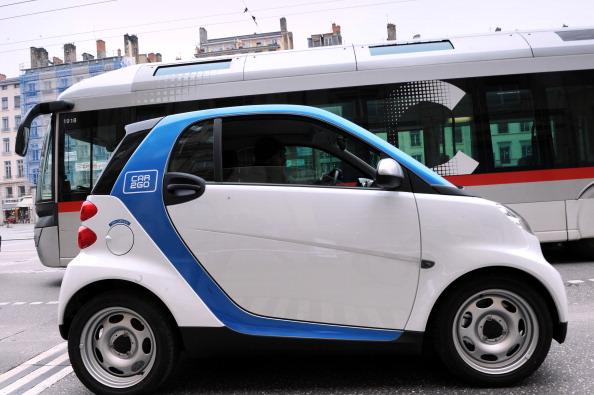Not to oversell it, but the electric bike might be the single best urban transportation option out there.
Think about it. While car commercials very rarely sell the reality of actually driving a car—the drudgery of daily traffic—regular old cycling is akin to eating your vegetables. We know it will make us healthier and can be just as effective an option as driving, but cycling advocates usually don’t account for that giant hill you have to climb to get to the office or the fact that your workplace doesn’t have a shower.
An electric bike is almost Goldilocksian in how it fits into the urban fabric. You get to power up that big hill, get some fresh air, and dodge traffic all at the same time.
Sonny Shem is an electric bike owner and he speaks with the zeal of the newly converted.
“I never liked riding to work in the summer because you were too hot and you still had to shower and you didn’t want to have to be at work and be uncomfortable but this allows me to get to work, ride when I want to ride, and get that [electric] assist when I want that assist and still enjoy the outdoors.”
It hasn’t always been this way. Electric bikes have languished as a niche item with homemade quirky designs and heavy batteries that made them impractical. But with the recent rapid improvement in lithium ion battery technology (thanks electric carmakers) you’re now looking at ranges of 30, 40, even 50 kilometers with a battery pack that’s smaller than a shoebox cut in half.
Cliff Vallentgoed is the owner of Redbike, a bike shop in Edmonton, Alberta. He’s only been stocking and selling electric bikes for the past few years but the trend is clear.
“Over the past three or four years we’ve seen our sales increase by many times. I think our very first season selling electric bikes we sold three, the following season we sold 12 so that gives you a picture of the growth curve of these things.”
And worldwide numbers agree. According to the Rocky Mountain Institute, e-bike sales are growing at 20 percent a year, with China already home to over 130 million. Navigant Research found that over 30 million electric bikes were sold in 2013 and predicts that sales will reach nearly 38 million a year in 2020.
A life cycle study from the Massachusetts Institute of Technology in 2010 found that, per mile travelled, an electric bike uses 10 per cent of the energy of a standard sedan and will emit 90 per cent fewer pollutants per passenger mile than an off-peak bus.
“The power is amazing. It makes you feel like you have bionic legs,” says Shem of the model we tried. Electric bikes have an internal governor that means you can’t go faster than 32 kilometers per hour, but at the end of a long day at the office twisting that throttle will surely put a smile on your face. Shem likens it to a constant downhill ride.
“We all like riding downhill with the wind in our hair and you get that experience whether you’re riding downhill, uphill, or in the flats,” says Shem.
Most cities aren’t as friendly to cyclists as Vancouver, a place we dubbed “bike city,” and better electric bikes cost about $2,500. But even at these early stages, it is clear electric bikes are here to stay and that you will see more of them on the road in the future. It’s fun, convenient, and the greenest commuting option out there.
Even hardcore pedalheads like Vallentgoed see the value in e-bikes.
“Anytime we can reach new users it’s brilliant. More users, more bicycles sold, fewer cars on the road, healthier happier people, that’s always the goal whether it’s the introduction of electric assist bikes or fat tire bikes or anything else that might appeal to someone.”
Troy Media columnists David Dodge is host and Duncan Kinney editor and production manager of Green Energy Futures, a multi-media series presented at www.greenenergyfutures.ca. The series is supported by Suncor Energy, TD, Shell Canada and the Pembina Institute.
